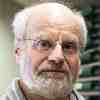Communications of the ACM
Refine your search:
From BLOG@CACM
How Do You Calculate with the Sector?
The sector was developed in the second half of the 16th century, and was in widespread use until the end of the 19th century,
From BLOG@CACM
Variable Vagaries
The variable, construed as an L-value, makes some offbeat appearances.
From BLOG@CACM
How to Support Research in Computer Science via Russian Scientific Foundations
Russia is lagging behind the world average in fields including medicine, the agricultural sciences, biotechnology, pharmacology, the social sciences, and computer...
From BLOG@CACM
Google Translate Does Not Understand the Content of the Texts
How well do translation programs translate?
From BLOG@CACM
Breaking the Chains of Freelance Slavery
The idea of working from home is no longer novel, and there are a number of drawbacks to consider.
From BLOG@CACM
Women Now Outnumber Men in Medical Schools. Computer Science Should Be Next.
This story about encouragement tells us how we can change girls' and women's lives.
From BLOG@CACM
Immigrants Help Solve the Looming STEM Worker Shortage
Our economic vitality depends on them.
From BLOG@CACM
Blockchain Was the First, but Will Not Be the Last
What is the outlook for Zero-Trust Decentralization, and should we expect other products aside from Blockchain?
From BLOG@CACM
In Search of A Rare Roman Pocket Calculator
As far as we know, three original copies of the Roman hand abacus have survived. There is a fourth device, but nobody knows where it is.
From BLOG@CACM
Will We All Be Wearing Wearables?
If wearable computing products are really needed, what are the biggest practical and research challenges to mainstream adoption?
From BLOG@CACM
Five Research Questions Raised by a Pre-Mortem on the 60 Minutes Segment on Code.org
If undergraduate CS research doesn't become gender-balanced in 10 years, why didn't it?
From BLOG@CACM
The Artificialistic Fallacy
Ethics discussions of artificial intelligence reveal a fallacy of omission.
From BLOG@CACM
An Agile Approach to Learning Programming
The Super Simple Programming Book is one example to teach programming in an Agile way. In general, Agile concepts can lead to highly effective learning.
From BLOG@CACM
In (Virtual) Defense of Democracy
There are two ways to proceed with political discourse in cyberspace, if the trolls are to be tamed.
From BLOG@CACM
Calculating With Roman Numerals is Not So Difficult
How to deal with Roman numerals and without a sign for zero in an additive number system, if no hand abacus is available?
From BLOG@CACM
Computer Science Was Invented to Teach Everyone About Everything
Our goal should not be Computational Thinking, but Science, Mathematics, History, Engineering, and *Everything* Thinking.
From BLOG@CACM
Why is Privacy So Hard?
Why is privacy so hard? Why is it, after so much negative press about it, are we still being constantly tracked on the web and on our smartphones? Why is it, after...
From BLOG@CACM
Standing on the Shoulders of Giants
What SIGCSE's Top 10 Lists tell us about the growing field of Computer Science Education (and computer science more broadly).
From BLOG@CACM














